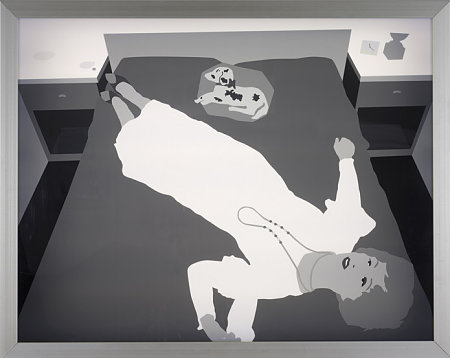
On the Horse
In order to combat my students’ fear of poetry, I find it best to resort to violence. I often start the assault with Philip Levine’s “The Horse.” The first stanza’s visceral description of the titular creature laid bare by the atomic bomb that levels Hiroshima never fails to leave a mark: “the horse alive / without skin, naked, hairless, / without eyes and ears.” What’s left of the horse wants nothing more than the caress of a stable boy, the same one, we presume, it kicks to death later in the poem. Observers watch the horse “butting his long / skull to pulp.” No one puts the horse out of its misery.
“That’s awful,” one student says. Others nod in agreement.
“What would you do?” I ask. “Shoot the horse?”
“Of course.”
I tell the class that one time, on the way to work, I ran over a squirrel. Not its body. Just its front paws. When I looked back in the rearview mirror, I saw the squirrel dance, hooked tale quivering, struggling desperately to free its flattened paws from the pavement. As I drove out of sight, the squirrel remained there, stuck to the street. I spent the rest of the day trying to purge the image from my mind’s eye, but it didn’t stop me from teaching my classes or enjoying my lunch.
“I didn’t have the heart to turn around and run it over again,” I say.
Dead silence. Until one kid goes, “Wow.” Clearly my story has affirmed what many of them already suspect: I am a heartless dick. Maybe so.
Within weeks of the atomic bomb, life returns to Hiroshima. “Mountain flowers / burst from the red clay walls,” Levine writes, and “[r]aw grass sprout[s] from the cobbles.” The fate of the horse? Survivors speak of it “again and again,” but the horse, unlike the grass, doesn’t return.
The last stanza takes an odd turn, though. Levine drops into the first person and reports that “[t]here had been no horse.” The “rage” has left the survivors’ “bones in one mad dance.”
“What a minute. What?” a student asks.
“I don’t get it,” another says.
“Think about it,” I say. “There’s a horse, and then there isn’t a horse. What do you think it means?” Jesus, I think, I sound like a stereotypical therapist: Instead of just giving up the answer, I try to get my students to do it on their own. Maybe because I don’t know it.
